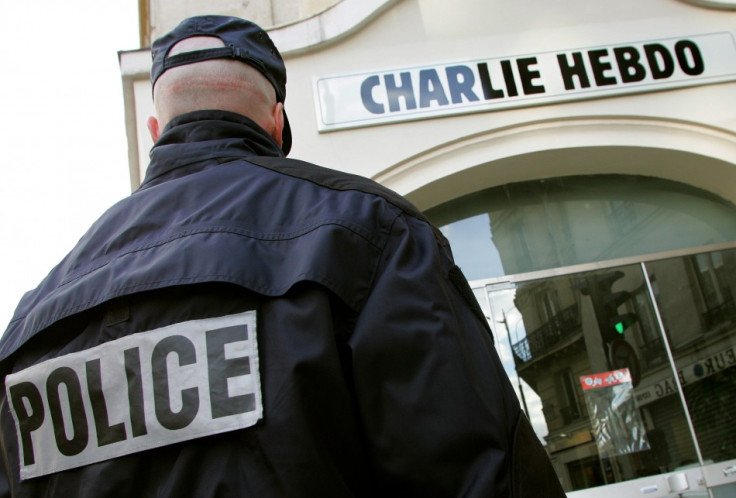French Satirical Magazine Charlie Hebdo Firebombed After Prophet Muhammad Made 'Guest Editor'

The offices of a French satirical magazine that named the Prophet Muhammad "guest editor" of its latest issue were destroyed by a petrol bomb early Wednesday morning.
The building housing Charlie Hebdo was partially burnt, French police said, but nobody was injured.
The publication's Web site also was hacked Wednesday morning, covered by a message in Turkish and English denouncing the use of Muhammad's image, forbidden in Islam, in the magazine.
According to witnesses, a Molotov cocktail set a rapidl fire that burned all the magazine's equipment and furniture.
The attack took place a day Cahrile Hebdo announced its new latest issue would feature an editorial piece "written" by the prophet titled "Halal Aperitif" and a women's supplement called "Madame Sharia."
A drawing of Muhammad saying, "100 lashes if you are not dying of laughter" can be seen on the front cover while on the back page another image of him wearing a red nose reads, "Yes, Islam is compatible with humour".
Charlie Hebdo said the issue's theme was inspired by the rise of Islamic political parties in Tunisia and Libya that insist they can reconcile Islam and freedom.
"In order fittingly to celebrate the Islamist Ennahda's win in Tunisia and the NTC (National Transitional Council) president's promise that Sharia would be the main source of law in Libya, Charlie Hebdo asked Muhammad to be guest editor," said the magazine's statement.
"The prophet of Islam didn't have to be asked twice, and we thank him for it," the statement added.
The attack clearly shows that magazine's humour was not shared by some Muslims.
The issue was expected to be controversial, but this week the magazine's editor in chief and cartoonist, Charb, told the AFP news agency: "We don't feel like causing further provocation. We simply feel like doing our job as usual. The only difference this week is that Muhammad is on the cover and it's pretty rare to put him on the cover."
In 2007, the Great Mosque of Paris and the Union of Islamic Organisations of France sued Charlie Hebdo for "public insults against a group of people because they belong to a religion" after it reprinted cartoons of the prophet that had originally appeared in a Danish newspaper in 2005 and provoked violent protests by Muslims worldwide.
The publication's then-executive editor, Philippe Val, was acquitted and hailed the outcome as a victory for freedom of expression.
No group has yet claimed responsibility for the attack.
© Copyright IBTimes 2024. All rights reserved.






















